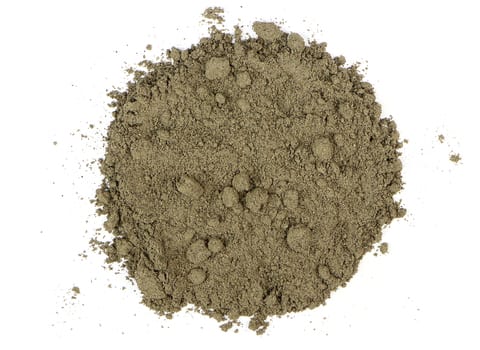Mulberry, Indian: (Morinda citrifolia)
The word ‘mulberry’ is usually associated with silkworms, but the Indian Mulberry also plays an important role in Ayurveda, the world’s oldest system of holistic healing. The plant grows in many parts of India, and one variety especially does well in the southern states like Kerala, as this species flourishes in warm balmy weather. The powdered extracts from the roots, leaves and fruit of the Indian Mulberry, which is known as ‘Noni’, have been traditionally used as a sedative and for many other Ayurvedic medicinal purposes. The plant, which can grow up to 9 m tall, has large, simple, dark green, shiny and deeply veined leaves. Some species grow well well on sandy or rocky shores and apart from saline conditions, the plant also can withstand drought.
The Indian Mulberry has flowers and fruits all year round. The flowers are small and white. The fruit is a multiple fruit that has a pungent odor when ripening. Mulberries are eaten as fruit and are also used to make, juices, sauces, muffins, cakes, cookies, tarts, wines, ice creams, smoothies, yogurt and jam. Sherbets are made from black, red and white mulberries…and of course Mulberry leaves are the only source of food for silkworms.
Mulberries are a literal powerhouse of nutrition. They are very rich in Vitamins B C, K and the element iron. Good levels of fiber, riboflavin, phosphorus, copper, magnesium, potassium and calcium are also found in mulberries. They are an excellent source of the antioxidants resveratrol, zeaxanthin, lutein ,and to a lesser extent the alpha and beta carotene. The leaves contain 18 amino acids, while the fruit mulberry contains a number of phytochemicals, including lignans, oligo- and polysaccharides, flavonoids, iridoids, fatty acids, scopoletin, catechin, beta-sitosterol, damnacanthal, and alkaloids.
Various parts of the Indian mulberry are used for medicinal purposes, such as containing fever, and also as a tonic. Eye problems, skin wounds, gum and throat problems, respiratory problems, constipation, stomach pains and post delivery pains are treated using its leaves, flowers, fruit and bark. The leaves are used in a gargle for throat infections, while heated leaves of the plant are applied to the chest, in order to relieve coughs, nausea and colic. The fruits are used to treat fever, depression, and sore throat as they are cooling. The bark of the Mulberry root is used as purgative and anthelmintic, while its juice is used to treat high blood pressure.
Mulberries are used in Ayurvedic preparations to reduce cholesterol, prevent blood clots and heart palpitations as well as to aid in weight loss, build immunity, benefit the digestive system, enhance appetite and check anemia and insomnia. Mulberry is also used in Ayurveda to soothe the nerves, relieve tiredness and fatigue. A simple home remedy for mouth ulcers and enlarged glands is to gargle with a solution of mulberry sherbet. Add 1 tsp of mulberry sherbet to a cup of water to make this solution. Interestingly, some recent studies conducted on Indian mulberry have suggested that it is capable of inhibiting the formation and growth of cancer cells. It activates the immune system of the body and has shown promise in helping combat leukemia, which is induced by retrovirus infection. So the next time you come across the word “mulberry”, don’t just think of silkworms or jams and jellies- think of Ayurveda and the myriads of ways this system of healing uses the Mulberry for your good health.












Reviews
There are no reviews yet.